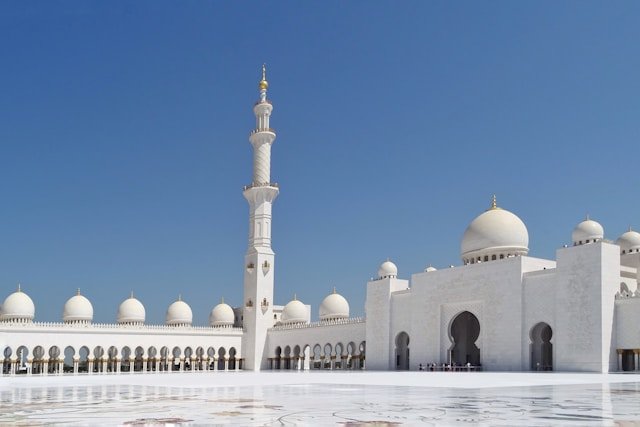The UAE government has announced the official holidays for private sector employees across the country on the occasion of Eid Al Fitr. The break will begin on Monday, April 8 and last until 3 Shawwal, as per the Islamic calendar. Ramadan lasts 29 or 30 days, depending on when the Moon is sighted, and Eid Al Fitr is celebrated on the first of Shawwal, which corresponds to the Gregorian date.
The nine-day break to celebrate Eid Al Fitr is a significant period of celebration and relaxation for Muslims around the world, marking the end of the holy month of Ramadan. Eid Al Fitr, also known as the “Festival of Breaking the Fast,” is one of the most important religious festivals in Islam, characterized by prayers, feasting, and social gatherings.
During Ramadan, Muslims fast from dawn until sunset, refraining from food, drink, and other physical needs as a form of spiritual discipline and reflection. The end of Ramadan is determined by the sighting of the crescent moon, which signifies the beginning of Shawwal, the month following Ramadan in the Islamic lunar calendar. Eid Al Fitr begins with the sighting of the new moon.
The nine-day break to celebrate Eid Al Fitr typically includes the following:
Announcement of Eid: The exact dates of Eid Al Fitr are determined by the lunar calendar, so the specific timing may vary from year to year. The announcement of Eid is eagerly awaited, and it marks the beginning of preparations for the festivities.
Prayers: On the morning of Eid, Muslims gather in mosques or open spaces for special prayers known as the Eid Salah or Salat al-Eid. These prayers are performed in congregation and include special supplications and praises to Allah.
Social Gatherings: Eid Al Fitr is a time for families, friends, and communities to come together and celebrate. After the prayers, people exchange greetings of “Eid Mubarak” (Blessed Eid) and visit each other’s homes. There are often elaborate feasts and gatherings where delicious traditional foods are shared.
Charity: Zakat al-Fitr, or the “Fitrana,” is a form of charity given by Muslims during Eid Al Fitr. It is obligatory for those who can afford it and is meant to purify the fasting person from any indecent act or speech and to help the needy. This charity is usually given before the Eid prayers to ensure that everyone in the community can participate in the festivities.
Gifts and Celebrations: It is common for people to exchange gifts and sweets during Eid Al Fitr as a gesture of goodwill and generosity. Children often receive new clothes, toys, or money as part of the celebrations.
Cultural Traditions: Different cultures have their own unique traditions and customs associated with Eid Al Fitr. These may include special dishes, music, dances, and festive decorations that reflect the cultural heritage of the community.
Reflection and Gratitude: Eid Al Fitr is also a time for Muslims to reflect on the spiritual lessons learned during Ramadan and to express gratitude for the blessings of Allah. It is a time of renewal and thanksgiving, as well as a reminder of the importance of compassion, generosity, and community.
Overall, the nine-day break to celebrate Eid Al Fitr is a joyous and festive occasion that brings people together in worship, gratitude, and celebration. It is a time to strengthen bonds of family and community and to renew one’s commitment to faith and righteousness.

